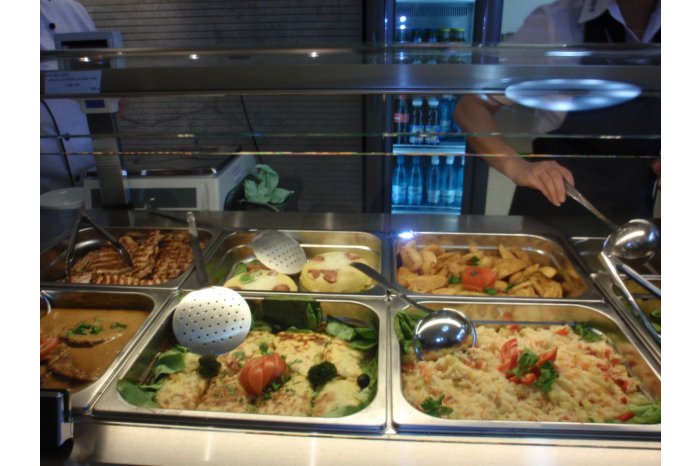Legislative initiative on meal vouchers subjected to public discussions in Moldova
15:48 | 01.02.2017 Category: Social
Chisinau, 1 February /MOLDPRES/ - A legislative initiative on meal vouchers was discussed at public discussions organized by the parliament today. Representatives of trade unions, business environment and other concerned state institutions participated in the debates.
Under the document, the private companies with registered share capital of at least ten million lei will provide each employee a meal voucher worth 45 lei. The money will be used only on the purpose of benefiting from dinner or buying food products, except for alcoholic drinks and cigarettes. The system will work based on contracts signed by operators with public nourishment institutions and shops.
The draft’s author is Parliament Speaker Andrian Candu. According to him, the legislative initiative represents a way of Moldova’s economic growth, reducing of phenomenon of salaries in envelopes and a certain means of improving the residents’ living standards and health. The meal vouchers represents beneficial supplement to the salary; yet, its offering does not see decrease in the monthly payments. “The meal vouchers will be provided in line with the days worked in the previous month, and their sum will not be taxed. Also, the meal vouchers will not be compulsory, but will represent an additional option for employers,” Andrian Candu noted.
The deputy head of the National Trade Unions Confederation, Sergiu Sainciuc, said the legislative initiative was welcome. “The document provides for enhancing the employees’ social protection. Nevertheless, a priority would be the fact that, following vouchers’ acceptance, people’s salaries should not be decreased. Also, we need to establish whether the payment of 45 lei will be stable or will be annually revised. The document also needs rectifications; yet, we believe that the initiative is good and is in favour of the employee,” Sainciuc said.
On the other hand, representatives of the business environment and members of the National Employers Confederation (CNP) declared against the initiative on increasing the enterprises’ spending. The document might lead to less money meant for the state budget, because of the company’s lower income,” a business environment representative, Valeriu Bodiu, said.
At the same time, a CNP member, Vladislav Caminschi, specified that “the operator’s exact incomes are not clear, as well as the sources from which it will carry out its activity, which might create difficulties.”
Most participants in the discussions spoke out for the issuance of electronic meal vouchers; nevertheless, it is going to be a prerogative of the employer.
The draft initiative launched by Speaker Andrian Candu is to be considered and adopted in parliament.
The meal vouchers are provided in more European countries and in the United States; this practice started being applied in 1954.
(Reporter A. Plitoc, editor L. Alcaza)

